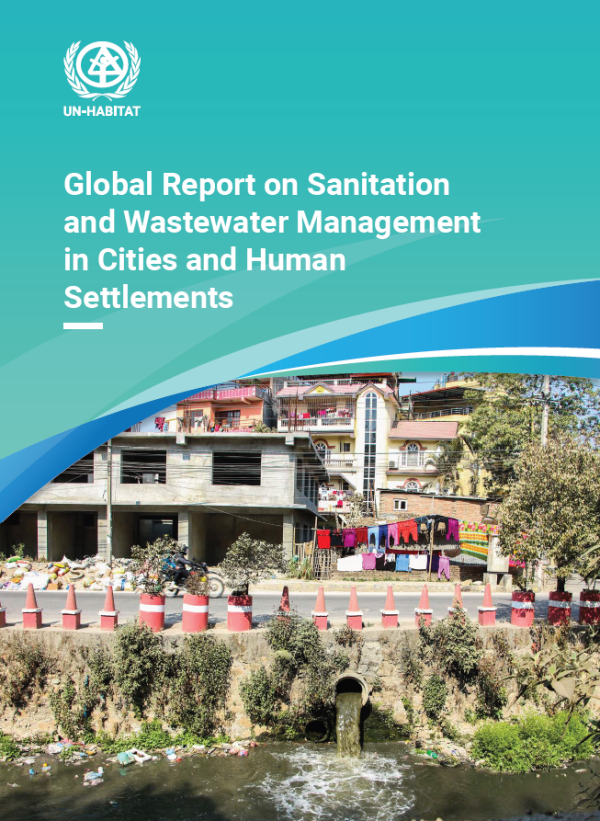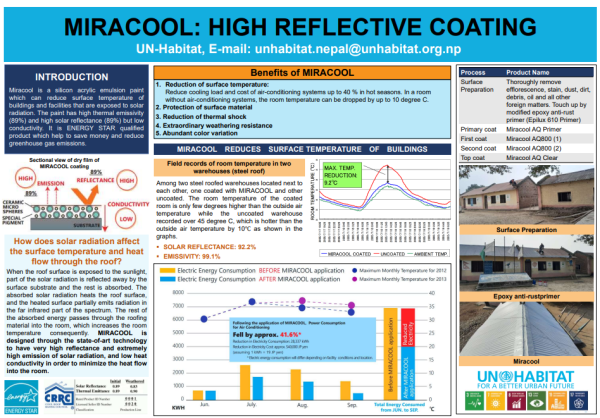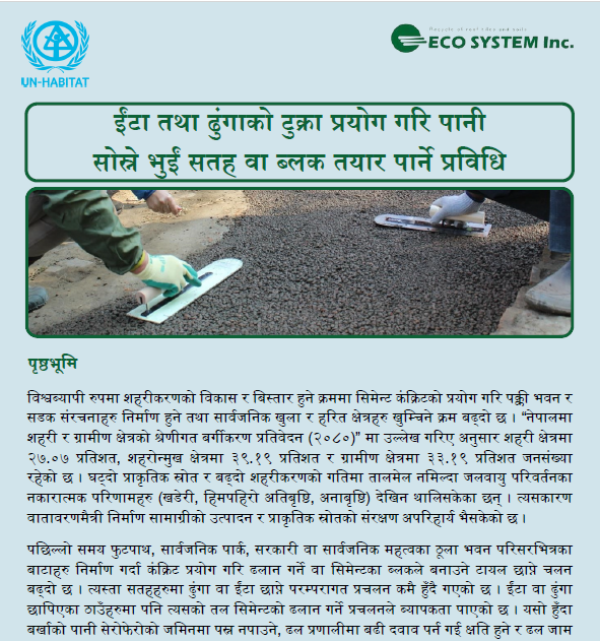Orientation on GESI Guideline of MOUD among Urban Stakeholders
22 December 2023, Kathmandu.
UN-Habitat Nepal in collaboration with the Ministry of Urban Development (MOUD) conducted an orientation
program of the approved “Gender & Social Inclusion Guideline of MOUD 2023
(GESI Guideline 2023)” among urban
stakeholders. The GESI
guideline 2023 is the revised version of the version published in 2013. It has
been approved by the honorable minister for MOUD Ms. Sita Gurung and launched
on October 2nd 2023, on the occasion of the World Habitat Day.
The orientation provided practical insights on the implementation of the GESI Guideline that would help the stakeholders to ensure GESI responsiveness in integrated in all phases of the project (from conceptualization to implementation) and sensitize them about the Guideline and its provisions. 33 participants (11 females and 1 person with disability) participated in the workshop representing various sections and agencies of MOUD, local municipalities and other urban stakeholders. The program was facilitated by Mr. Kamal Adhikari, Senior Sociologist at MOUD.
Mr. Om Dharananda Rajopadhyaya, Team Leader through ADA Consultancy for the revision and development of the Guideline, presented on the structure, key aspects and provisions for implementation of the revised Guideline with clear and concise steps on GESI mainstreaming in all project cycle.
Mr. Saraju Kumar Baidhya, Secretary of the Ministry of Urban Development (MoUD), conveyed his gratitude for the successful preparation of GESI Guidelines and highlighted the need of its implementation for urban planning and infrastructure development. He underlined that the successful implementation of GESI guideline 2023 hinges on various factors, including the establishment of institutional structures, investment, planning cycles, human conduct development, monitoring and evaluation, advocacy, and research.
All participants further engaged in a group work that were given different types of projects, health post, community building, municipal building and pubic park, to apply the GESI concepts in its various phases of cycle namely, 1) Planning/design, 2) Implementation, 3) Monitoring and 4) Operation/Maintenance. The groups engaged in discussions analysing gaps/issues and identified ways to incorporate GESI in various phases of the project cycle. The groups developed a checklist to ensure the mainstreaming of Gender Equality and Social Inclusion (GESI), organized into all four phases.
During the
closing session, Ms. Pragya Pradhan, the Habitat Programme Manager at
UN-HABITAT Nepal expressed that the Guideline represented the culmination of
1.5 years of dedicated effort and collaboration during implementation of the
Mainstreaming LNOB in Urban Policies project. Ms. Pradhan drew connections
between the GESI guidelines and fundamental human rights issues, highlighting
that Nepal's constitution also addresses the importance of physical
infrastructure facilities. She underscored the significance of seamless connectivity
and stressed the vital role of mobility in accessing various facilities and the
need to transcend from GESI responsive to transformative actions.
Mr. Narayan Prasad Bhandari, Deputy Director of the Urban Development Division at DUDBC, shared his perspectives on the implementation of GESI aspects. With emphasis on the need to integrate GESI Guidelines 2023 in infrastructure and settlement development programs, he committed to ensure implementation of the Guidelines.
Dr. Binod Pokhrel, a Professor at the Central Department of Anthropology, Tribhuvan University, shared his reflection referring to his engagement with the National Planning Commission during formulation of the National framework on GESI and the importance of the subject matter to be of concern of all, and specially of academia to integrate it is curriculum. Mr. Pokhrel extended his congratulations to the entire team involved in developing a comprehensive and inclusive GESI guidelines.
Mr. Padma Kumar Mainalee, Joint Secretary at the Ministry of Urban Development (MOUD), in a closing remark, shared his extensive experience working on GESI-related programs since 2011/12. He underscored the paramount importance of inclusiveness, suggesting that if the 2015 Constitution of Nepal could be encapsulated in a single word, it would be the 'inclusiveness’. Mr. Mainalee emphasized the need for dynamic policies and guidelines that can adapt to changing times and contexts and the commitment of the ministry for implementation of the GESI Guideline.
Key Takeaways:
- Prioritize Implementation: While everyone appreciated the comprehensiveness of the Guideline, many have expressed their concern and need for wider dissemination for effectiveness of its implementation at all levels of the government. So, further to the Guideline, effective and smart tools/audit checklists, etc. integration in Building Code need to be prioritized to facilitate its implementation.
- Broader Implication: GESI should be a core agenda for developing inclusive cities and should not be confided to a small faction or limited scope as tick box approach. It should be applied on a broader spectrum of all levels of systems and planning.
(Full
document of the GESI Guideline of MOUD can be accessed through this
link.)




